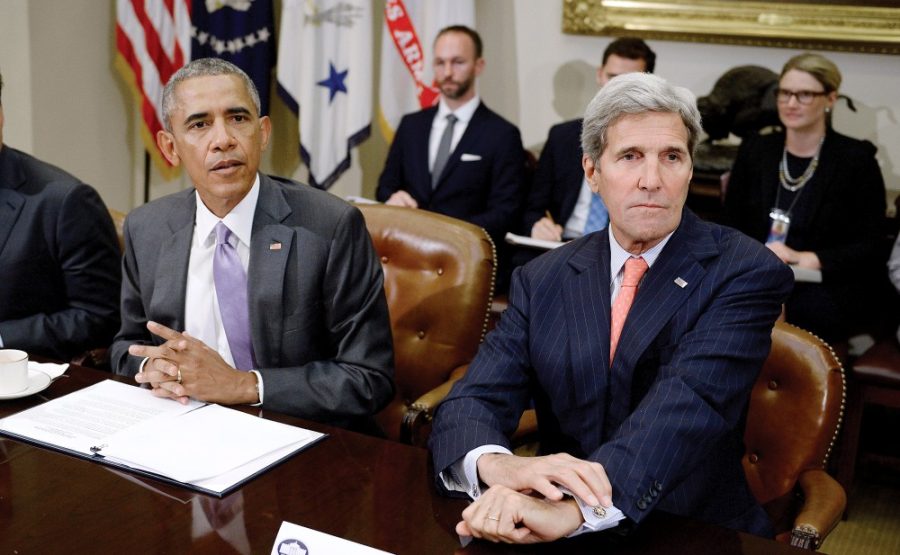The Iran Deal, formally known as the Joint Comprehensive Plan of Action, has been a topic of considerable controversy over the past few months. With this issue in the national spotlight, the UA has been working to expose more students to the complex issue.
The evolving role of Iran and the complex dynamics of its role in the world were examined at an event hosted by the UA Hillel Foundation in collaboration with The Arizona Center for Judaic Studies .
“Iran has had no hesitation when it comes to funding their proxies,” said professor Asher Susser, the Andrea and David Stein professor of Modern Israel Studies at the UA, during his talk “Iran and the Arabs: The Changing Balance of Power.”
Susser contends that Iran will only continue spending more money on their proxies, like Syria, if the sanctions are lifted.
“If Syria is lost, the entire hegemony design of Iran will be lost,” Susser said. “Without Syria, they have no connection to Hezbollah and Lebanon and without that connection, they will lose their stranglehold on Israel.”
As Syria has become increasingly reliant upon the aid of countries such as Russia and Iran, Iran has been more than willing to fund the regime.
“They are spending nearly a billion dollars a month on Syria, even with low oil prices and the sanctions currently in place,” Susser said.
According to a study released by the Pew Research Center, a non-partisan research group, only 21 percent of Americans support the agreement with 49 percent opposed and 30 percent having no opinion. The support is down from 33 percent when President Barack Obama first announced the agreement in mid-July.
“There needs to be a strategy for what will happen next, if and when Iran cheats on the nuclear agreement,” Susser said. “There needs to be a focus on creating strategic operations for the future.”
With Congress voting on the deal this fall, Arizona’s senators have mulled the options and taken their stand on the issue.
Arizona senators John McCain and Jeff Flake, along with the rest of their Republican colleagues, have pledged to vote against the deal.
Sen. Flake was the last Republican senator to pledge his support against the deal, despite being seen by many as a potential target for bipartisan support for the Obama administration.
“While Congress has received assurances from the administration that it does not forfeit its ability to impose sanctions on Iran for behavior on the non-nuclear side, these assurances do not square with the text of the JCPOA,” Sen. Flake said in a statement released last month.
Arizona Democratic congresswoman Kyrsten Sinema is also against the deal.
“I am concerned that this agreement will escalate a conventional arms race in the Middle East and further destabilize the region,” congresswoman Sinema said in a statement released on Thursday.
Despite the sentiments of Arizona congressional leaders, news released this past week showed that President Obama had gained enough Democratic support in the Senate in order to block a Republican resolution to reject the deal.
“The Iran agreement is not a panacea for the sectarian and extremist violence that has been ripping that region apart,” said Secretary of State John Kerry. “But history may judge it as a turning point.”
Opinions on the both sides of the argument on the Iran agreement have been strong, and the UA will continue to try and shine a light on the impact it could have.
There is going to be a discussion on the agreement titled, “The Iranian Nuclear Agreement: Containment or Catastrophe?,” on Thursday. The event will be sponsored by the Arizona Center for Judaic Studies, the College of Social and Behavioral Sciences and the UA science program.
Three main participants will be professor Philip Pinto, an associate professor of Astronomy, professor Faten Ghosn, an associate professor of Government and Public Policy and Near Eastern Studies, along with professor Susser. The event is free and will begin at 7 p.m. in Crowder Hall.
Follow Sebastian Laguna on Twitter.









